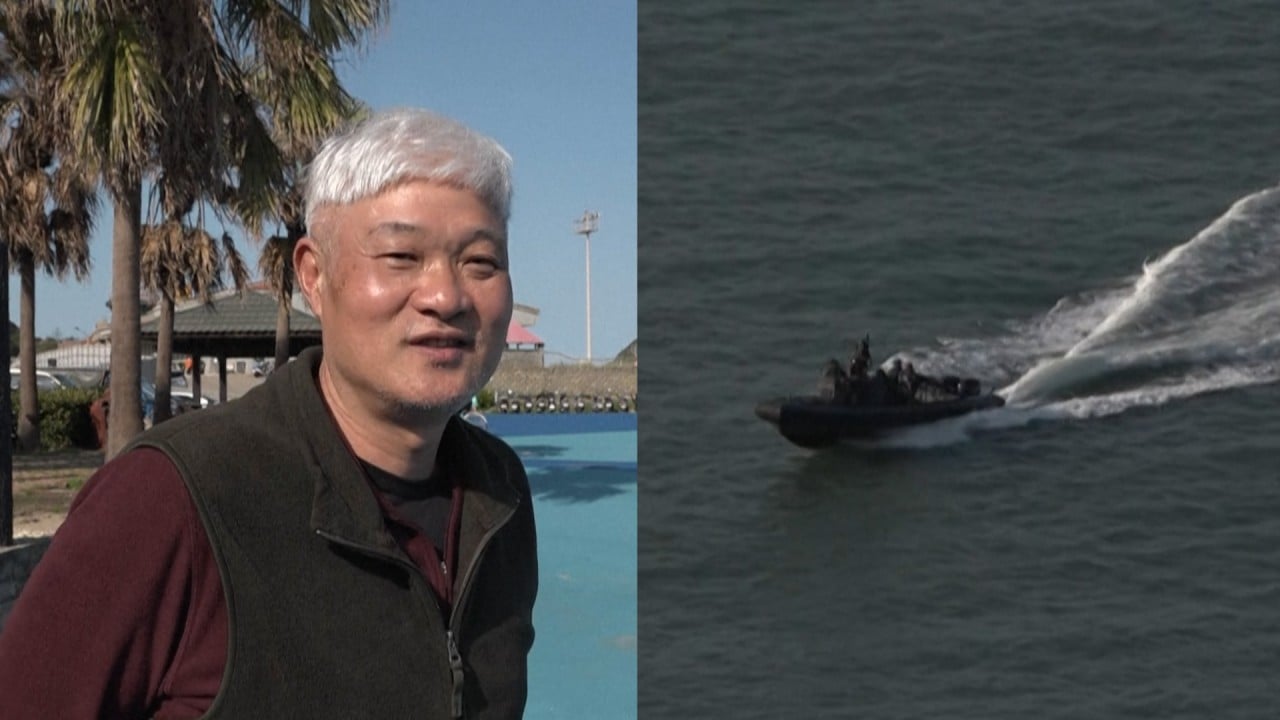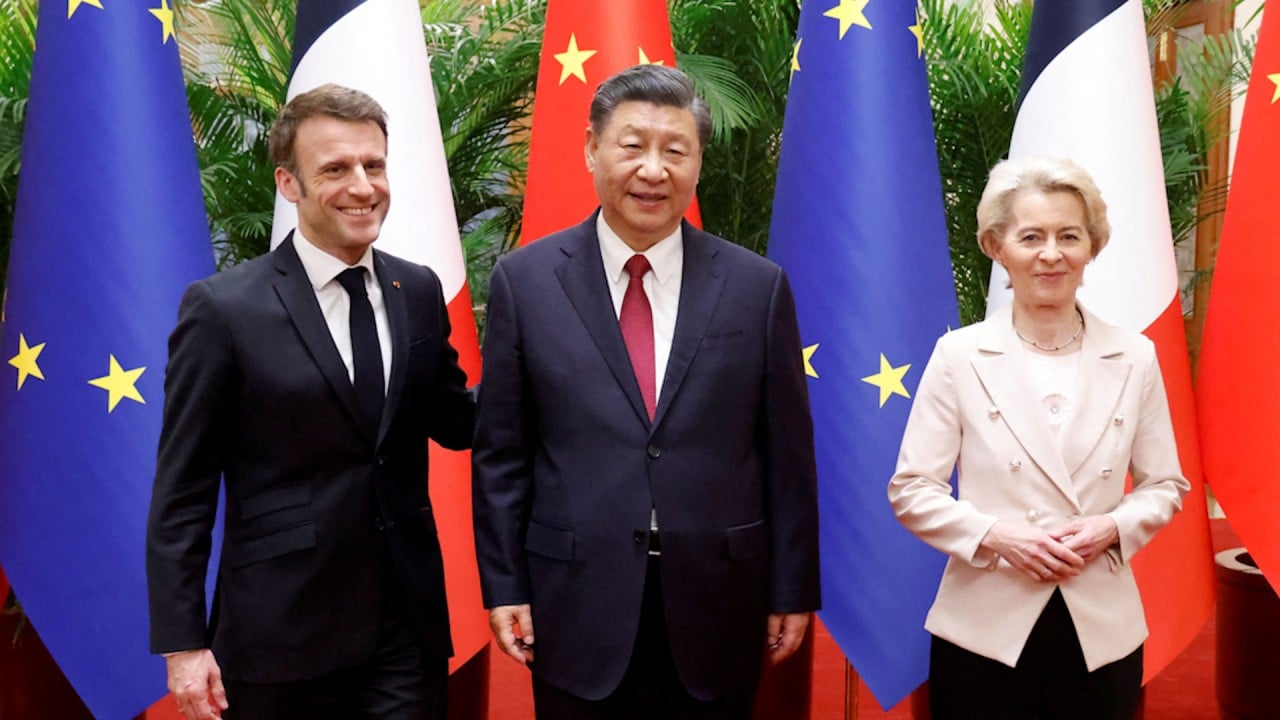
Most Europeans would want to stay neutral in a US-China war over Taiwan, study finds
- Across 11 nations, just 23 per cent said they would prefer to side with the US, according to European Council on Foreign Relations poll
- Europeans are also ‘reluctant to de-risk from China – even if they recognise some risks in China’s economic presence in Europe’, researchers say
Just 23 per cent of people across 11 countries would want to take the US’ side, with 62 per cent wanting to stay neutral.
The poll was part of a study by the European Council on Foreign Relations, which shows that many European citizens (43 per cent) continue to view China as a necessary partner with whom they would like to cooperate – more than any other category.
“European citizens aspire to remain neutral in a US-China conflict and are reluctant to de-risk from China – even if they recognise some risks in China’s economic presence in Europe,” the researchers wrote.
The study comes amid a lively debate about how the European Union should engage with China.
In Brussels, policymakers are putting together an economic security strategy, to be proposed on June 20, which will recommend ways of weaning the European economy off Beijing in areas where dependencies are mounting. It will advance the bloc’s first moves in screening companies’ investments into China, a controversial move that has riled businesses and some member states who want to continue trading freely.
In some quarters, the China debate has been boiled down to a straight up shoot-out between French President Emmanuel Macron – an advocate of engagement – and European Commission President Ursula von der Leyen, the architect of Brussels’ “de-risking” campaign.
In April, speaking to media on a flight from Beijing to Guangzhou, Macron said the EU should avoid becoming a “vassal” of the United States on China, especially urging distance concerning any potential military defence of Taiwan.
The remarks sparked a huge discussion in Europe, with Macron roundly criticised by some other EU leaders and a host of US lawmakers. “Some Western leaders dream of cooperation with everyone, with Russia and with some powers in the Far East,” Polish Prime Minister Mateusz Morawiecki said at the time.
But the research shows that he had his finger on the electoral pulse. French respondents were slightly more willing to support the US than the average European, but 53 per cent preferred to remain neutral.
In Poland, meanwhile, 51 per cent of respondents wanted to stay neutral, even though more Poles were willing to take the US’ side than any other nation apart from Sweden.
“The findings show that, in many ways, European citizens are more on Team Macron than Team von der Leyen,” the researchers wrote.
“They do not see China as a power that challenges and wants to undermine Europe, and they do not buy into the ‘democracy versus autocracy’ framework promoted by the Biden administration.”
However, Europeans are increasingly cynical towards China on a number of fronts, the data show.
More Europeans support sanctioning China if it provides Russia with weapons even if it seriously harms Western economies, with 41 per cent in support of such a move versus 33 per cent against. Such a move has been described by EU leaders as a “red line”, and they continue to lobby China to not ship weaponry to the Russian military. Respondents see Russia as an increasingly junior partner in its relationship with China.
They are also wary of Chinese investments in Europe: a large majority thought it “unacceptable” that Chinese companies would own European ports, bridges, newspapers, football teams or technology companies. A smaller majority did not want Chinese companies building key infrastructure.
The study was based on a public opinion poll of 16,168 people in Austria, Bulgaria, Denmark, France, Germany, Hungary, Italy, the Netherlands, Poland, Spain and Sweden. It took place in April.



